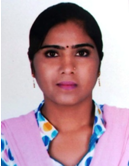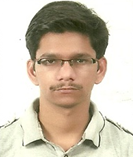| List of 3rd Semester Instruments |
| S.No. |
Name of Equipment |
Quantity |
Year of purchase |
Approx. Cost |
| 1 |
4 bit digital to analog convertor |
1 |
2013 |
3750 |
| 2 |
Super position theorem kit |
1 |
2013 |
4125 |
| 3 |
Norton theorem kit |
1 |
2013 |
4125 |
| 4 |
Verification of KCL and KVL kit |
1 |
2013 |
4950 |
| 5 |
Thevnins theorem kit |
1 |
2013 |
4125 |
| 6 |
Zener Diode V-I characterstics apparatus |
1 |
2013 |
4508 |
| 7 |
p-n junction diode characterstics |
1 |
2013 |
4508 |
| 8 |
UJT charatcerstics |
1 |
2013 |
1452 |
| 9 |
Transistor Characterstics (cc-pnp) |
1 |
2013 |
1350 |
| 10 |
Class (A) amplifier kit |
1 |
2013 |
1350 |
| 11 |
FET characterstics |
1 |
2013 |
1452 |
| 12 |
Common emitter amplifier |
1 |
2013 |
1350 |
| 13 |
Feedback amplifier posiitive and negative |
1 |
2013 |
1575 |
| 14 |
Multivibrators using op-amp |
1 |
2013 |
1350 |
| 15 |
Phase shift oscillator |
1 |
2013 |
1350 |
| 16 |
Rectifier circuit |
1 |
2013 |
1350 |
| 17 |
Multivibrators (astable and monostable ) |
1 |
2013 |
1350 |
| 18 |
UJT as relaxation oscillators |
1 |
2013 |
1350 |
| 19 |
SCR triggering using UJT relaxation |
1 |
2013 |
1500 |
| 20 |
Operational amplifier as (invertor &non invertor Summing and diffrential amplifier |
1 |
2013 |
4800 |
| 21 |
Wein bridge (capacity measurements) |
1 |
2013 |
13950 |
| 22 |
4 bit analog to digital convertor |
1 |
2013 |
3750 |
| 23 |
Digital full adder & substractors using NAND gate |
1 |
2013 |
4036 |
| 25 |
Digital lab trainer |
1 |
2013 |
12075 |
| 26 |
Mux/Demux |
1 |
2013 |
1350 |
| 27 |
XOR gate |
1 |
2013 |
1350 |
| 28 |
FLipflops |
1 |
2013 |
1350 |
| 29 |
Demorgans theorem |
1 |
2013 |
1350 |
| 30 |
shift registers |
1 |
2013 |
1520 |
| 31 |
universal gates kit |
1 |
2013 |
1350 |
| 32 |
logic gates kit |
1 |
2013 |
1350 |
| 33 |
Code conversion (binary to grey and grey to binary |
1 |
2013 |
1350 |
| 34 |
Analog Lab trainer |
1 |
2013 |
18570 |
| 35 |
Voltage and Current Feedback Amplifier |
1 |
2013 |
7038 |
| List of 4th Semester ETE lab Instruments |
| S.No. |
Name of Equipment |
Quantity |
Year of purchase |
Approx. Cost |
| 1 |
SMPS trainer SME192205 |
1 |
2015 |
6533 |
| 2 |
SAMpling and Quantization trainer SMI 115163 |
1 |
2015 |
11000 |
| 3 |
Embedded system trainer with M processor or mBoard plus display SME192285 |
1 |
2015 |
39162 |
| 4 |
Transmission Line trainer |
1 |
2013 |
24955 |
| 5 |
Wheatstone bridge |
1 |
2013 |
8400 |
| 6 |
8085 Microprocessor |
1 |
2013 |
11748 |
| 7 |
Frequency Modulation |
1 |
2013 |
7810 |
| 8 |
Amplitutde modulation |
1 |
2013 |
7810 |
| 9 |
Decade inductanc box with sine wave oscillators |
1 |
2013 |
5250 |
| 10 |
Wein Bridge /Phase shift /Sampling& hold circuit trainer |
1 |
2013 |
20000 |
| 11 |
Strain gauge trainer kit |
1 |
2013 |
27370 |
| 12 |
Linear IC trainer |
1 |
2013 |
9440 |
| 13 |
LVDT trainer kit |
1 |
2013 |
11600 |
| 14 |
RTD trainer kit |
1 |
2013 |
11600 |
| 15 |
Control Lab Trainer Kit |
1 |
2019 |
385900 |
| 16 |
PIC Trainer Kit |
1 |
2019 |
95000 |
| 17 |
Simulation Software SME 192206 |
1 |
2015 |
37705 |
| List of 5th Semester ETE lab Instruments |
| S.No. |
Name of Equipment |
Quantity |
Year of purchase |
Approx. Cost |
| 1 |
SCR triggering circuits trainer SME192254 |
1 |
2015 |
5810 |
| 2 |
Invertor using power MOSFET trainner SME 192261 |
1 |
2015 |
14533 |
| 3 |
Chopper using SCR trainer SME 192262 |
1 |
2015 |
12571 |
| 4 |
Stepper Motor Controller Trainer SME 192264 |
1 |
2015 |
9705 |
| 5 |
(P)Control system trainer SME 192277 |
1 |
2015 |
13810 |
| 6 |
(pi) Control System Trainer SME 192278 |
1 |
2015 |
12762 |
| 7 |
(pd) control system trainer SME192280 |
1 |
2015 |
12762 |
| 8 |
SCR single phase (half wave full wave fully controlled rectifier/convertor |
1 |
2013 |
10960 |
| 9 |
Modem Network Trainer Kit |
1 |
2018 |
26400 |
| 10 |
Microwave Trainer Kit |
1 |
2019 |
89450 |
| 11 |
Antenna Trainer Kit |
1 |
2019 |
180000 |
| 12 |
Barcode Scanner SME 115147 |
1 |
2015 |
4700 |
| List of 6th Semester ETE lab Instruments |
| S.No. |
Name of Equipment |
Quantity |
Year of purchase |
Approx. Cost |
| 1 |
GSM mobile trainer SME199240 |
1 |
2015 |
42857 |
| 2 |
Telephone Trainer SME199242 |
1 |
2015 |
11429 |
| 3 |
Basic Fiber Optics Trainer SME192243 |
1 |
2015 |
17190 |
| 4 |
Advanced fiber optics Trainer SME 192244 |
1 |
2015 |
2333 |
| 5 |
Fiber Optic Training Kit |
1 |
2018 |
48000 |
| 6 |
Power Quality Analyzer cum Meter |
2 |
2018 |
13099 |
| 7 |
Sound Level Meter with Data Logging |
1 |
2018 |
13099 |
| List of ETE lab NEW Instruments |
| S.No. |
Name of Equipment |
Quantity |
Year of purchase |
Approx. Cost |
| 1 |
Signal generator |
2 |
2018 |
119380 |
| 2 |
clamp meter |
10 |
2018 |
4999 |
| 3 |
Digital multimeters |
20 |
2018 |
2200 |
| 4 |
Digital Signal Oscilloscope |
2 |
2018 |
195000 |
| 5 |
power supply |
6 |
2018 |
8500 |
| 6 |
CRO 30 Mhz |
1 |
2018 |
29500 |
| 7 |
Electrician tool kit |
1 |
2018 |
14995 |
| 8 |
Analog Oscilloscope |
10 |
2018 |
23500 |
| 9 |
Antenna and Microwave Trainer |
1 |
2020 |
180000 |
| 10 |
Satellite trainer |
1 |
2021 |
119000 |




